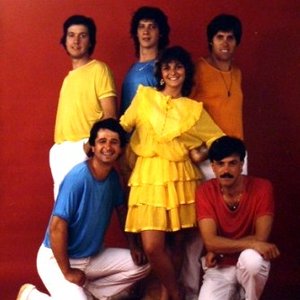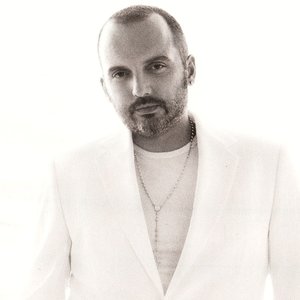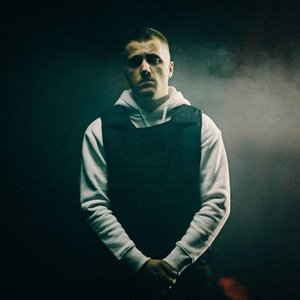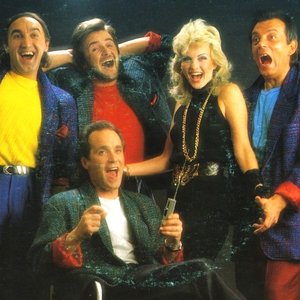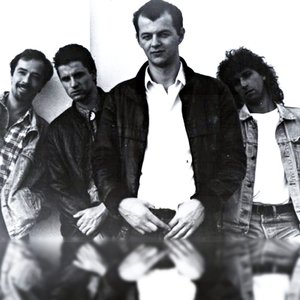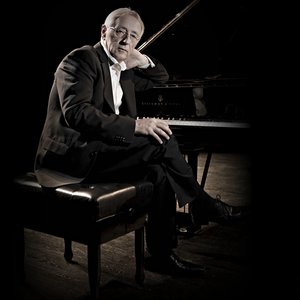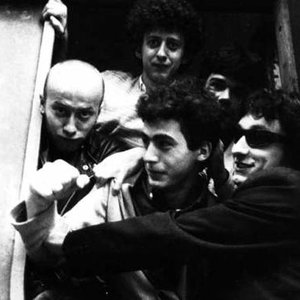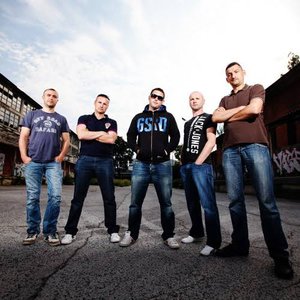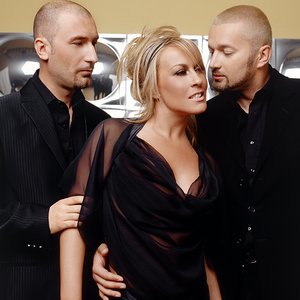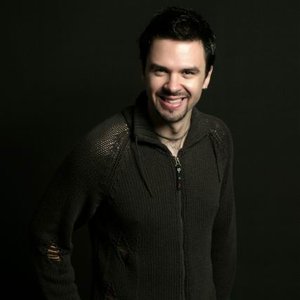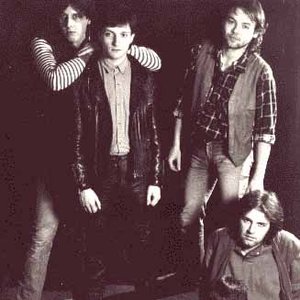Biography
Thompson is a Croatian rock band. The frontman, songwriter and lead vocalist of Thompson is Marko Perković, who is often identified with the band. Thompson is often considered his stage name. The lineup also includes Tiho Orlić as supporting vocalist and bass guitarist, while the remaining members of the bend are less prominent. The remaining members of the band (as of Bilo jednom u Hrvatskoj tour) are: Damir Lipošek Kex, Fedor Boić, Damir Šomen, & Tomislav Mandarić. The name "Thompson" comes from the Thompson submachine gun, which was Perković's nickname.
Thompson annually performs for Victory and Homeland Thanksgiving Day in Perković's hometown of Čavoglave. In 2006, he was joined by Mate Bulić, Tiho Orlić, Dražen Zečić, Ivan Mikulić and Baruni for a performance in front of 60,000. In 2007, he was again joined by Dražen Zečić, Mate Bulić and Tiho Orlić, for a performance in front of 50,000.
Thompson, along with fra Šito Ćorić and Miroslav Škoro, performed the official anthem of the Croatian World Games. Thompson also composed the anthem of the Croatian Party of Rights. Thompson's Lijepa Li Si was recorded with Miroslav Škoro, Mate Bulić, Giulliano, Mladen Grdović and Alen Vitasović. Other collaborations have included Ljuta guja with Jasmin Stavros, and Reci brate moj with Miroslav Škoro.
Thompson has been banned from performing in The Netherlands because the government forbids "fascist" promotion and deemed the band's lyrics to contain such. However, he has recently been promoting a point of view, saying in an interview before the start of his Bilo jednom u Hrvatskoj Tour in Borovo Naselje (one of starting points of the Croatian War of Independence), "Wear the insignia of the victorious Croatian Army. It is sad that young people return so far in history and fall for propaganda
Marko Perković first gained prominence at the beginning of the Croatian War of Independence in 1991 with the song "Bojna Čavoglave" (trans. Battalion Čavoglave). Perković performed the song under the pseudonym Thompson. The song starts with "Za dom - Spremni!", a phrase which was used as an Ustaša salute during World War II. From there, the song mostly deals with a call to Croatian armed forces to defend Čavoglave against the rebel Serb armed forces. It was seen as fueling the morale of Croatian fighters and was very popular at the time.
In 1992 Thompson published his first album Moli mala. By this time he had left the Croatian Army but he returned to military service for a short time in 1995 to participate in Operation Storm. As time passed Perković lost his early popularity and through the 1990s he remained relatively less popular. He did release some minor hits such as Zmija me za srce ugrizla (trans. "Snake bit my heart") and Grkinjo, znaj, svemu je kraj (trans. "Greek woman, know that we're through"), but repeated his popularity after the hit Prijatelji in 1998.
After the parliamentary elections in 2000, a leftist government (led by the president of the Social Democratic Party (SDP), and a prominent leader in Croatia's push for independance, Ivica Račan) was formed. This sparked angry reactions among Croatian nationalists and Thompson once again gained popularity. During his concerts he often made obscene remarks on then-premier Račan and then-president Stipe Mesić.
Many of Thompson's songs (such as "Bojna Čavoglave", "Lijepa Li Si", "Vjetre s Dinare") have become major hits in Croatia, and are played at football games and other large events. The band has won the Croatian music competitions Melodije Mostara (in 2001) and the Croatian Radio Festival (in 2006), and has performed annually on Victory and Homeland Thanksgiving Day, with all benefits going to families of Croatian soldiers.
On one occasion, he performed the song Jasenovac i Gradiška Stara (not after 2003). The song isn't Thompson's work at all, neither could be found at any album of this band. This event was later exploited to the maximum by its enemies. Even those person that are under suspicion and investigation of committing of war crimes, found themselves as meritory to speak about "Thompson's hatred".
Bilo jednom u Hrvatskoj tour:
Bilo jednom u Hrvatskoj was released in December of 2006. Despite the late release, it became the second-highest selling Croatian album of the year. Soon after, Thompson announced an initial tour of Croatia and select European cities beginning after the Lenten season through to the summer, and culminating with a performance at Maksimir Stadium in Zagreb. The tour began in Vukovar in the Borovo Naselje neighborhood where approximately 4000 fans came out to watch the group perform.
The tour continued to Đakovo before going to Frankfurt, Germany's Ballsporthalle where he performed for a crowd of approximately 15,000. In adjacent hall Bob Dylan performed with an audience of about 2,000 people. When he heard that Thompson had an audience of 15,000 people he asked to be taken to the concert. After that he said that he liked the music. The first tour leg in Croatia ended in biggest concert on Maksimir Stadium in Zagreb. He performed in front of 60 000 spectators. Concert was broadcast live on Croatian Public Television.
After the Kornati firefighter tragedy of the summer of 2007, Thompson participated in the recording of a memorial song Ovo nije kraj (This is not the end), as well as a charity football match at Poljud.
He had two shows scheduled in November 2007 for New York City, which provoked protests from several Jewsish groups. These lobby groups called on the Archdiocese of New York to stop the show, but this failed as the diocese found no evidence that the group promotes Nazism. A Washington Post reporter who attended one of the concerts was also not convinced of the alleged Neo-Nazi link. Thompson's concert in the Toronto area attracted 5000 people to the Croatian centre where it was held, after the original venue of 2500 capacity, Kool Haus, cancelled.
Artist descriptions on Last.fm are editable by everyone. Feel free to contribute!
All user-contributed text on this page is available under the Creative Commons Attribution-ShareAlike License; additional terms may apply.

